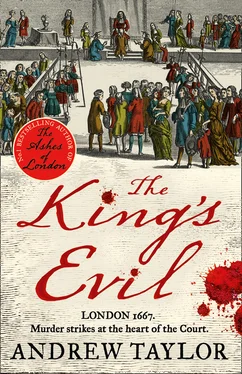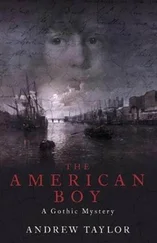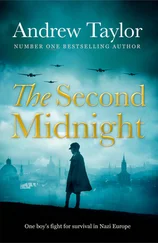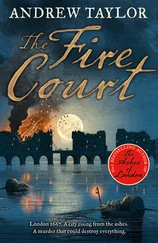In the hall below, the King was stroking the neck of the kneeling patient with his long fingers, while someone in the crowd was weeping and the clergyman was praying in an inaudible monotone. The King’s face was grave, and his heavy features gave him an air of melancholy. He was staring over the head of the kneeling woman. It seemed that he was looking up at me.
‘Do you think Alderley was telling the truth?’ I said.
Lady Quincy stirred beside me, and her arm brushed mine, just for an instant. ‘He came to …’ There was a pause, as if she needed a moment to decide what to say. ‘He came in the hope of impressing me, perhaps. Or … Or to make me afraid of him.’
‘ Afraid? ’ I looked towards her again, but her face was still invisible. ‘You? Why should you be afraid of him?’
‘Warn Catherine for me,’ she said, ignoring the question. ‘Promise me you will, and as soon as you can. I don’t want her death on my conscience.’
‘I promise.’
‘I believe Edward would kill her himself if he could.’ She paused, and then abruptly changed the subject. ‘I shall listen to the sermon at St Olave’s on Sunday morning. Do you know it? In Hart Street, on the corner of Seething Lane.’
I nodded. It was not far from the Tower, one of the few churches in the walled city that had survived the Great Fire.
‘Will you meet me there? Not in the church but afterwards – wait outside in a hackney. I wish to be discreet.’
‘Very well.’ I felt a stab of excitement. ‘May I ask why?’
But she had already turned away. She slipped through the crowd towards the door, followed by her small attendant, who I now saw was a lad with dark hair, presumably her footboy though he wasn’t wearing her livery. He was wrapped in a high-collared cloak that was too big for him.
Disappointment washed over me as Lady Quincy passed through the doorway to the stairs. The footboy followed his mistress. In the doorway he glanced back, and I saw that the lad was an African.
After Lady Quincy and her attendant had gone, I waited for a few minutes to avoid the risk of our meeting by accident. I left the balcony and went down to the Pebbled Court behind the Banqueting House. The sky was grey and the cobbles were slick with rain.
The public areas of the palace were packed, as they always were when the King was healing. The sufferers did not come alone: their family and friends came too, partly to support them and partly to see the miracle of the royal touch. It was unusual to have a big public healing ceremony in September, but the demand had been so great that the King had ordered it. Charles II was a shrewd man who knew the importance of reminding his subjects of the divine right of kings. What better way of demonstrating that God had anointed him to rule over them than by the miracle of the royal touch?
I crossed to the opposite corner of the court, passed through a doorway and went up to the Privy Gallery. Mr Chiffinch was waiting in the room where the Board of Red Cloth held its quarterly meetings; I was clerk to the board, and he was one of the commissioners. He was alone, because the other commissioners had already gone to dinner. He was sitting by the window with a bottle of wine at his elbow. He was a well-fleshed man whose red face gave a misleading impression of good nature.
In his quiet way, Chiffinch wielded more power than most men, for he was Keeper of the King’s Private Closet and the Page of the Backstairs, which meant that he controlled private access to the King. It was he who had told me to wait on the balcony in the Banqueting Hall until Lady Quincy approached me; he had said it was by the King’s order, and that the King relied on my discretion. He had also said that I was to do whatever her ladyship commanded.
‘Well,’ he said. ‘What did she want?’
‘I’m not permitted to say, sir.’
He shrugged, irritated but clearly unsurprised by my answer. He disliked being in a state of ignorance; the King did not tell him everything. ‘You didn’t attract attention, I hope?’
‘I believe not, sir.’
‘I’ll tell you this, Marwood: if you put a foot wrong in this business, whatever it is, we shall make sure you regret it. The King does not care for those who fail him. And he’s not in a forgiving mood at present, as my Lord Clarendon is learning to his cost.’
I bowed. A few weeks earlier, the King had removed Lord Clarendon, his oldest adviser, from the office of Lord Chancellor in one of the greatest political upheavals since the Restoration of the monarchy seven years before. But removing Clarendon from office had not made him politically insignificant. His daughter was married to Charles II’s own brother, the Duke of York. Since the King had no legitimate children, and Queen Catherine was unlikely to give him any, the Duke was his brother’s heir presumptive. Moreover, the next heirs in the line of succession were Clarendon’s grandchildren, the five-year-old Princess Mary and her infant sister, Anne. If the King were to die, then Clarendon might well become even more politically powerful than he had been before.
‘These are dangerous times,’ Chiffinch went on. ‘Great men rise and fall, and the little people are dragged up and down behind them. If my Lord Clarendon can fall, then anyone can. But of course a man can rise, as well as fall.’ He paused to refill his glass, and then went on in a softer voice: ‘The more I know, the better I can serve the King. It would be better for him, and for you, if you confided in me.’
‘Forgive me, sir. I cannot.’ I suspected that he was looking for a way to destroy the King’s trust in me.
‘It’s curious, though,’ Chiffinch went on, staring at the contents of his glass. ‘I wonder why my lady wanted to meet you in the Banqueting House of all places, at one of the healing ceremonies. She so rarely comes to Whitehall these days. Which is understandable enough. It takes more than a change of name to make people forget that she was once married to that bankrupt cheat Henry Alderley.’
I said nothing. Edward Alderley’s father had committed a far worse crime than steal other people’s money, though few people other than the King and myself were aware of that. I had done the King good service at the time of Henry Alderley’s death, which was when I had also had dealings with Lady Quincy. I kept my mouth shut afterwards, which was why he trusted me now.
Chiffinch looked up, and I saw the flash of malice in his eyes. ‘Did Lady Quincy get a good look at you, Marwood? Did she see what’s happened to you since she last saw you?’ He turned his head and spat into the empty fireplace. ‘It must have come as quite a shock. You’re not such a pretty boy now, are you?’

LATE ON FRIDAY afternoon, the rain dashed against the big windows of the Drawing Office at the sign of the Rose in Henrietta Street. It had grown steadily heavier all day, whipped up by a stiff, westerly wind. If it grew much darker they would need to light the candles.
Apart from the rain, the only sounds were the scratching of Mr Hakesby’s pen and the occasional creak of a floorboard, when Brennan, the draughtsman, shifted his weight from one foot to another. He was working on the detailed elevations for the Dragon Yard development by Cheapside, which was the main commission that Mr Hakesby had in hand at present.
Catherine Lovett was standing at a slope placed at right angles to one of the windows. Her neck and shoulders ached. She had spent the last half-hour working on another job. She was inking in the quantities and materials in a panel at one side of the plan for one of the new warehouses by the docks.
Читать дальше













